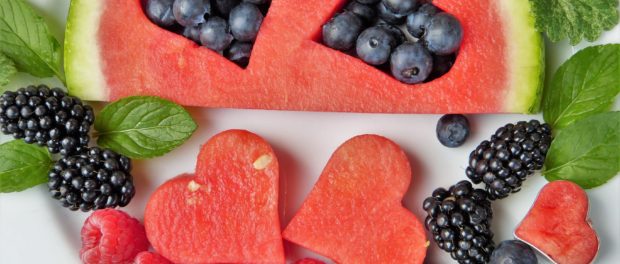The Best Anti-Anxiety Foods to Munch On

Whenever their stress levels rise, some people typically reach for a bag of chips or pint of ice cream, a habit known as “stress eating”1 or “emotional eating.” But although you may temporarily feel good after eating “comfort food,” you might end up regretting this in the long term. Emotional eating can result in inability to address the situation responsible for triggering unhealthy heating habits, devastating stress2 and weight gain.3
These Stress-Busting Foods Are All You Need
Being anxious is not an excuse for you to be reckless with what you eat. The next time you’re down in the dumps, opt for these potentially stress-busting foods to allow you to combat these feelings:4
|
Green leafy vegetables: According to Heather Mangieri, a spokesperson for the Academy of Nutrition and Dietetics, green leafy vegetables contain folate that produces “dopamine, a pleasure-inducing brain chemical [or neurotransmitter], helping you keep calm.”5 Your best bets for green leafy vegetables include spinach, kale and Swiss chard.6 |
Fermented foods such as kimchi, kefir and natto: Beneficial bacteria, or probiotics, are abundant in fermented foods, and may positively impact your mood and brain health, given that they are able to move mood- and behavior-regulating signals to the brain via the vagus nerve. One example of a beneficial probiotic is the Lactobacillus rhamnosus strain. It improved GABA levels in certain brain regions,7 and helped decrease corticosterone (a stress-inducing hormone) levels and alleviated anxiety- and depression-related behavior.8 |
|
Animal-based omega-3 fats: Ideally acquired from fish like wild-caught Alaskan salmon, sardines or anchovies, or high-quality krill oil supplements, omega-3 fats can do wonders for your mood. Research has proven that omega-3 fats were effective in inhibiting initial symptoms of depression without the side effects.9 Another study recorded a 20 percent decrease in anxiety among medical students who took omega-3s.10 |
Blueberries: Pigments called anthocyanins are responsible for the deep colors of blueberries, and help with the brain’s production of dopamine, a neurotransmitter that may boost your mood, memory and function. |
|
Bananas: These yellow fruits are home to dopamine, which may assist with promoting a better mood. Other vital mood-boosting nutrients present in bananas include B vitamins and magnesium. The former may help calm down the nervous system. |
Kiwis: These vitamin C-rich fruits may not just assist with combating infections, but aid in alleviating stress too. Studies have shown that consistent vitamin C intake helped lower both levels of stress hormones in the blood and typical indicators of physical and emotional stress.11 |
|
Dark chocolate: Anandamide, a neurotransmitter found in dark chocolate, is said to be beneficial in momentarily inhibiting negative feelings of pain and depression. However, eat chocolate in moderation, since some varieties contain high amounts of sugar that can be devastating for your health. |
Turmeric: This spice has been renowned globally, and most of its health benefits may be traced to the pigment curcumin. It’s responsible for the spice’s bright yellow-orange hue and health benefits, such as neuroprotective properties that may defendyour brain and improve your mood.12 |
Does the Combination of Caffeine and Anxiety Work?
Caffeine-containing beverages like sports drinks should not be considered for anxiety disorder patients because it may worsen their condition.13 However, a cup of organic, shade-grown black coffee without added creamers, sugars or sweeteners may be an exception to this rule.
A cup of joe can positively affect brain health by enhancing production of neurotransmitters that may assist with mood control, and promoting release of brain-derived neurotrophic factor (BDNF) that allows brain stem cells to develop new neurons.
The key to making coffee work for you, despite the caffeine in it, is to consume it in moderation and know the amount of coffee your body can tolerate in a given day, since different studies have suggested varying amounts of black coffee for a specific benefit. However, if you’re pregnant, you should refrain from drinking any coffee at all.
Let Go of Mood-Wrecking Foods
Steer clear of these three types of foods if you have been diagnosed with anxiety or are feeling anxious, since they can exacerbate symptoms:
•Sugar: Excessive sugar intake may contribute to different health problems for your mental and overall health. Apart from causing changes to blood sugar levels and mood swings, consuming way too much sugar may lead to insulin and leptin resistance that can cause impaired brain signaling, and reduce BDNF activity that may negatively affect stimulation or promotion of healthy brain neurons.
You may increase your depression risk if you consume excessive amounts of sugar as well, since this substance may cause chemical reactions in the body that may trigger chronic inflammation and immune system disruptions.
•Gluten: This protein found in grains like wheat, rye and barley14 was proven to negatively impact your mood and brain health. Various studies have proven this point. For instance, a 2001 Scandinavian Journal of Gastroenterology study showed that people with untreated celiac disease tend to experience anxiety and/or depression.15
Another study, published in Acta Psychiatrica Scandinavica in 2005, revealed that subjects who underwent a gluten-free diet experienced reductions or even a full remission of schizophrenia symptoms.16
•Processed foods: You must avoid these foods, which are usually made with sugar or gluten, trans fats, artificial sweeteners and colors, monosodium glutamate (MSG) and synthetic ingredients, as much as possible because these may cause irritability and poor mood.



